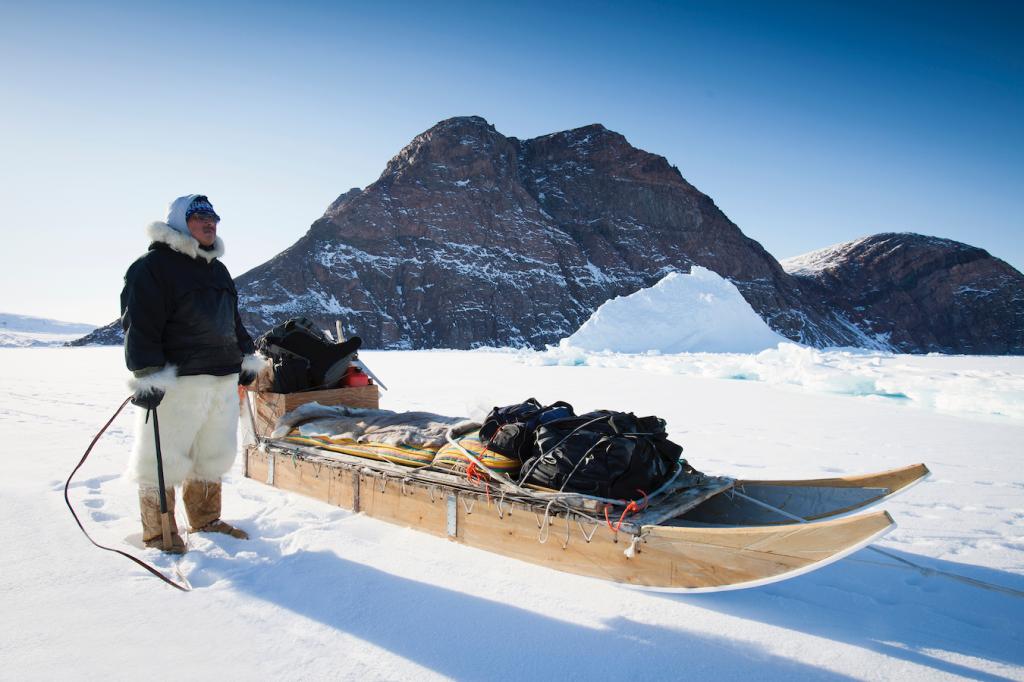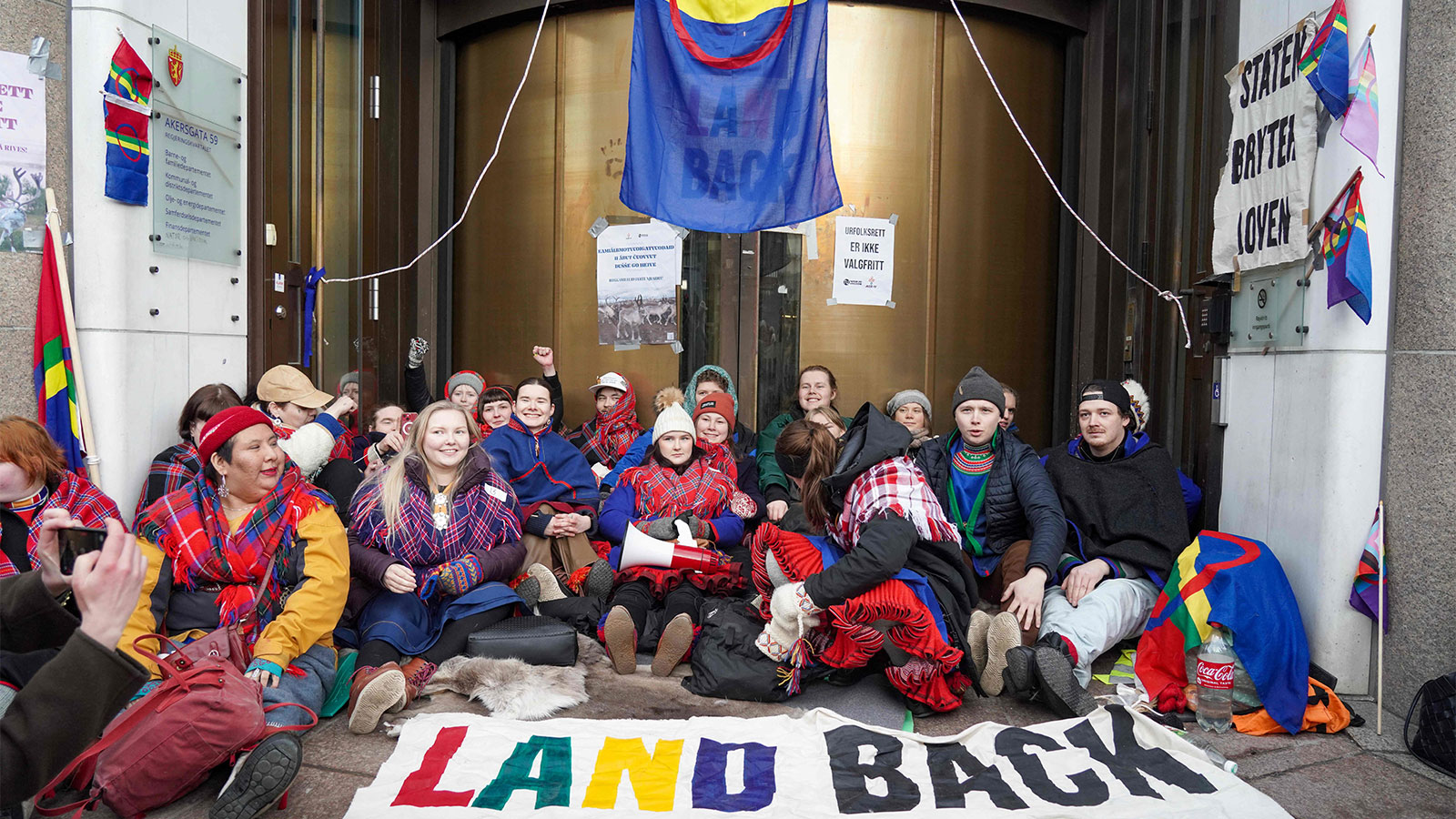Indigenous Sámi youth and dozens of environmental activists in Oslo, Norway shut down the Ministry of Petroleum and Energy on Monday, with many chaining themselves to the building. The action is part of a human rights campaign that demands the Norwegian government close an onshore wind energy complex that the country’s supreme court says was built illegally in Sámi territory.
Last Thursday, 15 Sámi youth activists began occupying the Ministry’s lobby and refused to leave the building in an effort to bring attention to the $1.3 billion Fosen Vind project, along Norway’s west coast, one of Europe’s largest onshore wind farms consisting of 151 turbines and completed in 2020. Norway is working with the European Union to decarbonize its economy by scaling up its renewable energy production. As of 2016, 98 percent of electricity production in the country comes from renewable sources. Most of that electricity comes from hydropower with wind power representing less than a 10th of production.
“We cannot be sacrificed in the name of the green transition because they cannot find other solutions,” said Áslat Holmberg, president of the Saami Council, a non-governmental organization with Saami members in Norway, Sweden, Finland and Russia.
In 2018, the U.N. Committee on the Elimination of Racial Discrimination requested Norway suspend construction of a power plant associated with the complex in traditional Sámi territory so that it could review complaints.
In 2021, Norway’s Supreme Court voted unanimously to strip the wind farm of its operating license after finding that its construction violated the Sámi’s ability to exercise their cultural rights because the windmills prevented them from herding reindeer – the area Fosen Vind occupies is a winter grazing area and crucial to the survival of herds. However, the ruling did not spell out what actions should be taken to remedy the problem.
Exactly 500 days after the court ruling, the Norwegian government has yet to take action against the Fosen Vind project, which led Sámi youth to occupy the Ministry of Petroleum and Energy on Monday where they were joined by climate activist Greta Thunberg. Organizers with the Norwegian Sámi Association’s youth council could not be reached for comment, but told the AP “the ongoing human rights violations” against Sámi reindeer herders “must come to an end.”
“Nothing has happened since the Supreme Court concluded that the permissions for the wind turbine area violates the human rights of the Sámi people,” said Eirik Larsen, a political adviser to the Sámi Parliament in Norway. “They have said they want to look into how they can keep the wind turbines without violating the human rights of the reindeer herders, which is impossible because they use the same land and you can’t herd reindeer in a wind industry area.”
“What kind of safeguards are there for Sámi if the justice system isn’t working in our favor?” Holmberg said. “What kind of constitutional state doesn’t respect the ruling of its own Supreme Court? Even when we win in court, still our rights are being offended. So what can we do?”
Sámi reindeer herders say that the turbines scare the animals and that the turbines are dangerous in the winter because they can “throw” dangerous shards of ice several hundred meters. Traditionally, the area Fosen Vind occupies is a winter grazing area and crucial to the survival of herds.
Requests for comment from the Norwegian government and Ministry of Petroleum and Energy were not returned. In a statement to Reuters, Terje Aasland, the minister of energy and petroleum, said that he understood that the case was a burden for reindeer herders, adding that “the ministry will do what it can to contribute to resolving this case and that it will not take longer than necessary.”
According to Eirik Larsen, the protest marks the first time in more than 40 years since Sámi organizers have occupied a government building. In 1981, 13 Sámi women and one child occupied the meeting room of the Norwegian prime minister for a day while a hunger strike took place outside of the parliament in opposition to a proposed hydroelectric dam on the Álttáeatnu River in Sámi homelands in northern Norway. Known as the Álta Action, Indigenous opponents of the project were ultimately unsuccessful in stopping construction of the dam, but the conflict has been seen as a turning point for Indigenous sovereignty in the region and became an international point of solidarity among many Indigenous communities around the world.
Reuters reported that the Fosen wind farms’ owners include Stadtwerke Muenchen, one of Germany’s largest energy companies, Statkraft and TrønderEnergi, two Norwegian companies focused on green energy, and Swiss energy infrastructure companies, Energy Infrastructure Partners and BKW.



